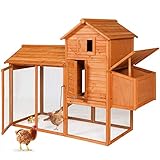Farmers provide food for both humans and animals everywhere. Their efforts are richly rewarded economically, with many commercial-scale farmers making thousands in revenue per year. Chicken farmers are some of the busiest all year round, but are they profitable?
How much do chicken farmers make? Chicken farmers make, on average, $68,090 a year. This annual wage depends on many factors, such as the size of the farm and the number of chickens. On smaller farms, some chicken farmers may earn as little as $35,090, but larger operations have been known to reach upwards of $130,000.
The rest of this article will discuss whether a chicken business is profitable, how chicken farmers make money, and how much they make per house. We’ll also discuss the different types of chicken farming and how each compares in terms of profitability.
Is Chicken Business Profitable?
If you’re considering starting your chicken farm, the first thing you’ll probably want to know is if it’s profitable and if it’s worth it. Poultry products are on the rise as more people choose white meat over red meat to stay healthy. Therefore, chickens are in high demand.
The chicken business is very profitable, as people can use chickens for various purposes, such as meat, eggs, and even feathers. Poultry production is one of the most profitable sectors in the United States economy, bringing in around $35.5 billion in 2020.
Poultry production includes all types of poultry, including broilers, turkeys, chickens, geese, ducks, and eggs. However, the poultry production profit of $35.5 billion recorded in 2020 only covers revenues from chickens, turkeys, broilers, and eggs.
How to Make Chicken Farming Profitable?
To make your chicken farm profitable, you have to consider several factors, such as the kind of farming you intend to do and how much time you can dedicate to the farm.
Selling Eggs
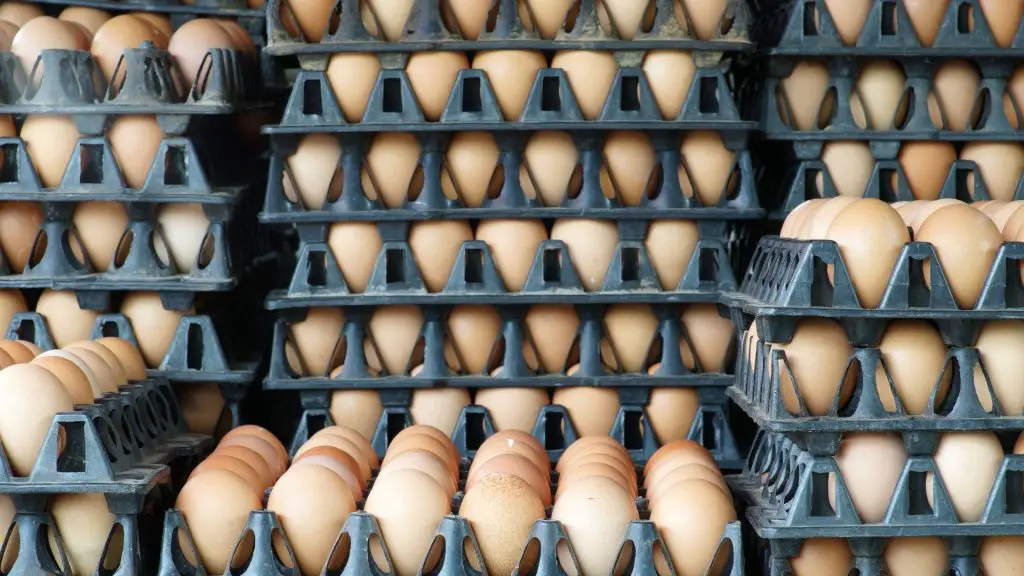
The easiest and one of the most common ways to make a chicken farm profitable is to raise chickens for their eggs.
Selling eggs, especially if you prioritize organic and non-GMO, is an excellent way to start a chicken farm and become profitable quickly, as you can easily branch off into other types of farming from farming eggs.
How Do Chicken Farmers Make Money?
Chicken farmers make money by selling meat, selling eggs, breeding chickens, or even selling feathers or manure. When selling whole birds, farmers are paid for the weight of their chickens. This means they must take care of them and feed them adequately to make a profit.
Some chicken farmers may participate in every aspect of chicken farming, while others may only sell eggs or meat.
However, a chicken farmer will make the most money by adopting the major chicken farming approaches commonly seen on large chicken farms.
What Are the Different Types of Chicken Farming?
The different types of chicken farming include broiler farms for meat, pullet farms for breeding, layer farms for eggs, and breeder farms for broiling. Broiler farms are the most common type of chicken farm where a chicken farmer works.
Read below for more information on each of the types of chicken farming.
Broiler Farms
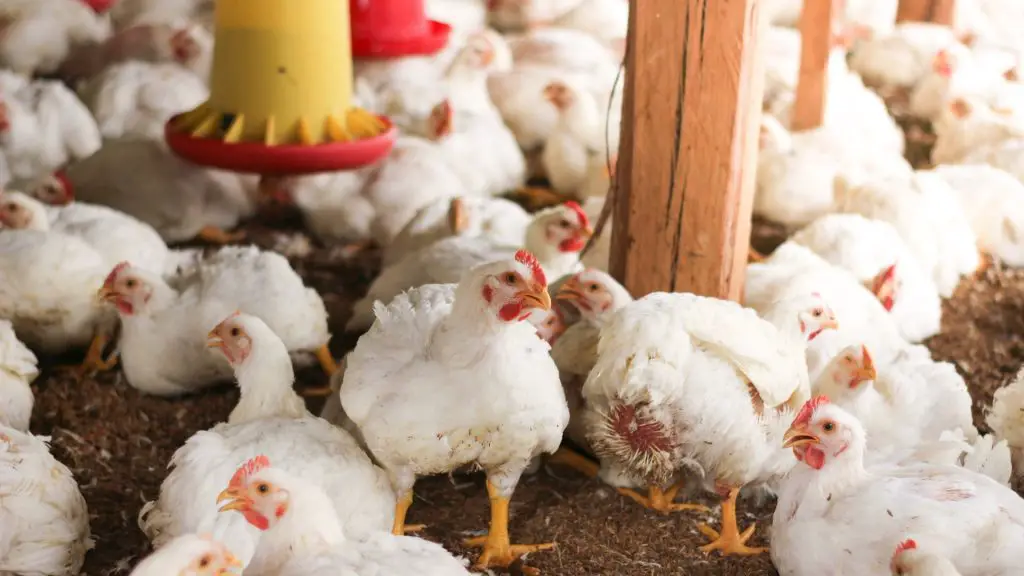
Broiler farms are the most common chicken farms. The main purpose is producing meat. Broiler farms may also consist of other poultry, such as turkey.
Chickens on broiler farms may tend differently than other chickens, as they tend to be bigger and bulkier than others.
Known as Broilers, these chickens grow faster than other breeds, and you can have a 10 pound (4.54 kg) chicken in as little as 10 weeks.
Some common Broiler breeds include:
- Cornish Cross: Harvest time is 4-6 weeks.
- Jersey Giant: Harvest time is 16-21 weeks.
- Bresse: Harvest time is 16-20 weeks.
- Orpington: Harvest time is 18-24 weeks.
- Freedom Rangers: Harvest time is 9-11 weeks.
Pullet Farms
Pullet farms are the least common chicken farms. It produces pullets (a female chicken, less than a year old) and delivers them to breeder farms.
Essentially, pullet farms are the first step into breeder farms. Breeder farms may purchase pullets from pullet farms for breeding purposes.
Layer Farms
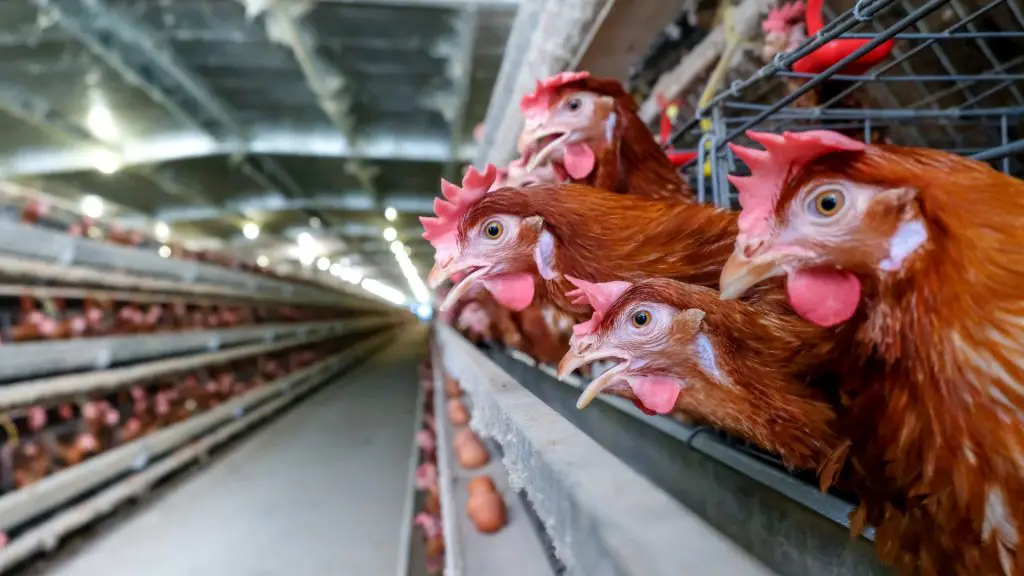
Layer farms focus on egg production. These hens are typically raised from a day old and can start producing eggs by the time they are 18 weeks old.
The White Leghorns chicken breed is most common for egg production. Layer farms are not as common as broiler farms, as the demand for meat is far higher.
Here are a few other breeds for egg-laying:
- Rhode Island Red: Can be used for meat and eggs.
- Plymouth Rock: Can produce up to 200 eggs per year.
- Australorp: Can produce over 300 eggs per year.
Breeder Farms
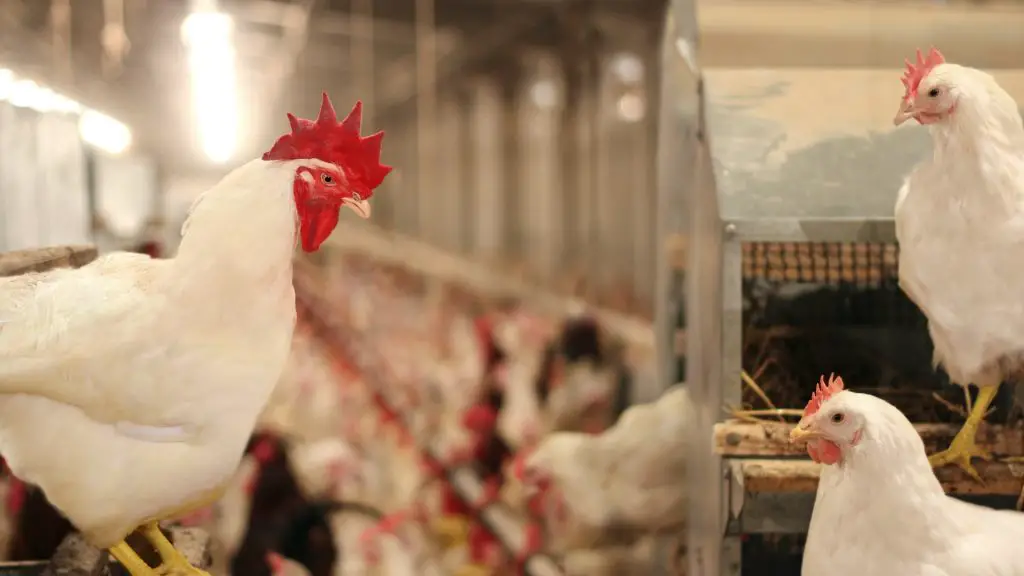
Breeder farms are used for breeding chickens.
Broiler farms and breeder farms often get confused, as they are very similar. But while broiler farms produce the meat you see in supermarkets, breeder farms produce eggs sent to broiler farms after they’ve hatched.
Chickens that are good for breeding are known as brooding, and they include:
- Brahmas
- Sussex hens
- Cochins
What Is Required for a Chicken Farm?
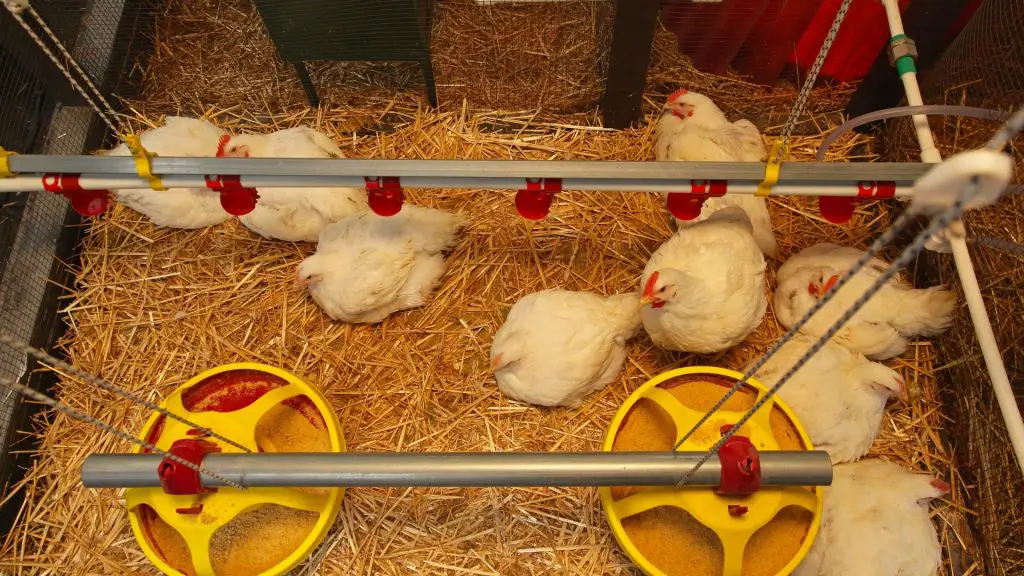
To run a chicken farm, you will need essential items such as cages, coops, crates, lighting instruments, nests, perches, and egg trays. Depending on the number of chickens will determine how much room is required. On average, a chicken needs around 2-3 sq. ft. (0.18-0.27 sq. m.).
While the number of chickens is an important consideration, you may need more or fewer materials depending on the type of chickens and the planned type of farming. For example, chickens in a breeder farm might require more room than a layer farm.
How Much Do Chicken Farmers Make per House?
Chicken farmers make around $28,000 to $35,000 a year per house. This number depends on the number of chickens in each house and the size of the house. Typically, a house will be around 36,000 sq. ft. (3,344 sq. m.).
Big chicken farms for mass production of meat or eggs will make more due to their massive size. Although smaller chicken farmers make less, they still can make a good living.
How Much Does It Cost to Build a Chicken House?
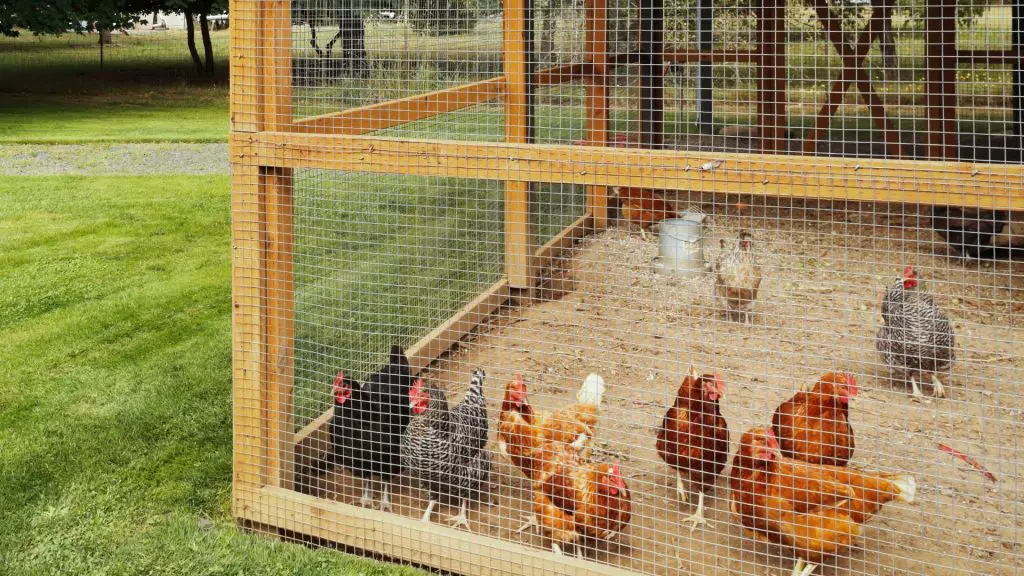
It costs $650 to build a chicken house on average, according to HomeAdvisor. You can build a chicken house for as low as $180, while more complicated options can cost up to $8,000.
Factors that can influence the cost include the size of the chicken house, the number of chickens the house should hold, and the standard of living in the area. Other factors can also come into play.
For example, you might need to pay for landscaping to build a chicken house. This can significantly increase the cost of the project.
The design you choose for the construction can also affect the overall cost. The smallest structure, or an A-frame, will only cost about $200, while more convoluted designs can cost up to $3,000.
You can also choose to look online for a chicken house. For example, this Best Choice Products Outdoor Wooden Chicken Coop from Amazon is a simple, straightforward design. It’s 80 in (2.03 m), made of durable materials, and is an excellent and secure place for chickens.
- COMFORTABLE LIVING SPACE: This multi-level coop has ramp access...
- SECURE HOUSING: Galvanized wire walls and a series of locks on...
- DURABLE MATERIALS: Made of 100% natural fir wood and galvanized...
- EASY TO CLEAN: Comes with a removable bottom sliding tray for...
- LARGE NESTING BOX: This deluxe chicken coop comes with a built-in...
Summary
Chicken farming is a profitable business, and that isn’t likely to change. Chicken is always in high demand, and there are different ways to make money from chicken farming and accrue profits.
While most chicken farmers choose broiler farming, they can still yield profit from the other types of chicken farming.
List of Sources
Poultry- Production, and Value

